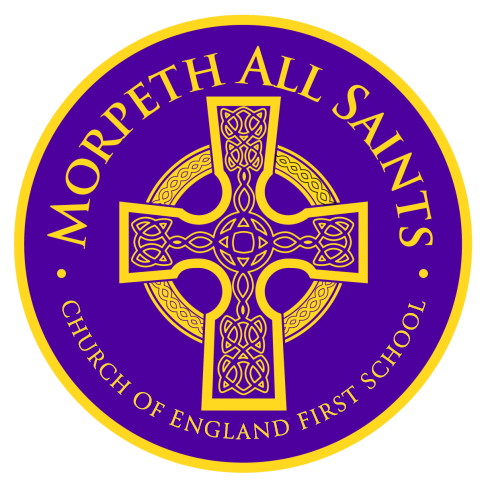Languages here at Morpeth All Saints…

At Morpeth All Saints, we are keen to promote the study of a foreign language because of its increasing importance in the modern world. We want to embed language learning into our curriculum. This has been recognised in the National Curriculum where there is the statutory commitment to give every child between the ages of 7 and 11 the opportunity to learn a new language. We do this across KS2 following the Language Angels scheme of work for French. Alongside these units, we aim to integrate the French language into the everyday curriculum where possible e.g. through History/Geography work, numbers in Maths, directions in PE etc.
Intent:
We strive to ensure we offer a relevant, broad, vibrant and ambitious foreign languages curriculum that will inspire and excite our pupils using a wide variety of topics and themes. Pupils will be expected to achieve their full potential by encouraging high expectations and excellent standards in their foreign language learning, progressively building on essential knowledge and skills as they progress on their learning journey. We desire to foster a love of language amongst our youngest learners through introducing French from Early Years in different daily tasks such as responding to the register in French. The ultimate aim being that by the end of their time at Morpeth All Saints, pupils will feel enthusiastic and confident about continuing to study languages beyond key stage 2.
We aim to develop in our children a genuine interest and positive curiosity about foreign languages, finding them enjoyable and stimulating. Learning a second language will also offer pupils the opportunity to explore relationships between language and identity, develop a deeper understanding of other cultures and the world around them with a better awareness of self, others and cultural differences. We aim to inspire the children to become life-long language learners.
Implementation:
At Morpeth All Saints all children in Key Stage 2 learn French as their Modern Foreign Language, in line with and preparing them for ongoing learning in local Middle Schools. All classes will have access to a high-quality foreign languages curriculum supported by the Language Angels scheme of work. This will progressively develop pupil skills in foreign languages through regularly taught and well-planned weekly lessons in French and ensures children have access to sound clips that model correct pronunciation by native speakers every lesson.
Children will progressively acquire, use and apply a growing bank of vocabulary, language skills and grammatical knowledge organised around age-appropriate topics and themes, building blocks of language into more complex, fluent and authentic language. They will build on previous knowledge gradually as their foreign language lessons continue to recycle, revise and consolidate previously learnt language whilst building on all four language skills: listening, speaking, reading and writing. Grammar is both integrated and taught discreetly throughout all appropriate units. Teachers can also use the specific grammar units to ensure pupils are exposed to all of the appropriate grammar so they are able to create their own accurate and personalised responses to complex authentic foreign language questions by the end of the primary phase.
The planning of different levels of challenge and which units to teach at each stage of the academic year will be addressed dynamically and will be reviewed in detail annually. Lessons offering appropriate levels of challenge and stretch will be taught at all times to ensure pupils learn effectively, continuously building their knowledge of, and enthusiasm for, the language they are learning.
The school has a two-year long term plan in place which will serve as an overall ‘teaching map’ for our MFL offer. Each class in Year 3 and 4 will have an overview of units to be taught during the academic year to ensure substantial progress and learning is achieved. Each teaching unit is divided into 6 fully planned lessons. Reading, speaking, listening and writing activities will be offered in all units. In addition, children may also participate in some of the following, where appropriate: Foreign language celebration assemblies. Dialogue with visiting native French speakers or virtually over the internet.
Cookery or tasting sessions of traditional foods from the country of the language being studied.
School celebrations of national feast days from France when appropriate to facilitate a whole school approach to foreign language learning along with improved cultural awareness.
Content will be continuously updated and reviewed annually, creating a dynamic programme of study that will be clearly outlined in both long-term and short-term planning. This will ensure that the foreign language knowledge of our pupils progresses within each academic year and is extended year upon year throughout the primary phase and, in so doing, will always be relevant and in line with meeting or exceeding national DfE requirements.
Although not taught formally in KS1, all children have the opportunity to participate in language celebration days and children in KS1 become familiar with basic greetings during registration, as well as songs and stories in French to begin to lay foundations for their study in KS2 and to start to foster a lover of languages.
Impact:
At Morpeth All Saints we assess the impact of our Modern Foreign Languages curriculum in many different ways. This begins with the use of formative assessment within lessons and targeted feedback at the point of learning, which is not solely the end product on paper but through the way children communicate about their understanding of MFL. Outcomes produced by the children are assessed against the desired skills and knowledge relevant to the specific year groups. At the end of each term, judgements are made against end of year expectations, which inform next steps for cohorts. Ongoing assessment of children’s enjoyment and appreciation of their French learning occurs through formal and informal pupil voice feedback. Teachers will aim to assess each language skill (speaking, listening, reading and writing) twice throughout each scholastic year to be able to provide reference points against which learning and progression in each skill can be demonstrated.
Languages Policy…
Skills progression documents…

